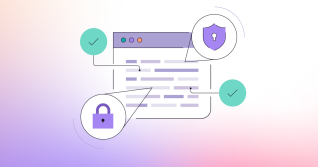Browse articles from Security


Self-service security alert handling with GitLab's UAM
The User Attestation Module automates security alerts by routing them directly to team members for verification, reducing manual SecOps work and enhancing audit trails.

Vulnerability risk prioritization made simple with GitLab
GitLab provides detailed vulnerability risk data to assess the potential impact of detected vulnerabilities. Learn how this enables teams to effectively prioritize remediation efforts.

How GitLab measures Red Team impact: The adoption rate metric
Follow our journey to develop and implement better metrics, including how we used GitLab to track our results end-to-end. Also find out the lessons learned along the way.

Introducing GitLab’s Open Source Security Hub
Our open source repository of projects designed to enhance security operations and risk management will help developers adapt faster, respond smarter, and defend better — together.

The ultimate guide to token management at GitLab
Learn all the steps in the end-to-end process of identifying, managing, and securing tokens for improved security across the software development lifecycle.

How to scan a full commit history to detect sensitive secrets
Use GitLab Secret Detection to scan a repository's commit history, including branches. View results within the GitLab UI with just a few lines of code added to a pipeline file.

Tutorial: Security scanning in air-gapped environments
Security scanning remains crucial even in air-gapped environments to detect internal threats, prevent data exfiltration, and maintain operational integrity. Learn how GitLab can help get air-gapped environments secure.
Find out which plan works best for your team
Learn about pricingLearn about what GitLab can do for your team
Talk to an expert
